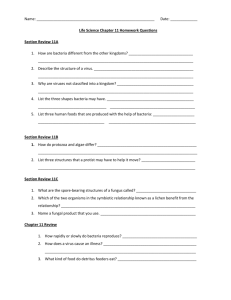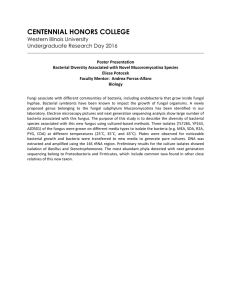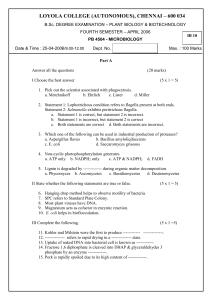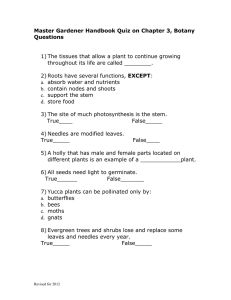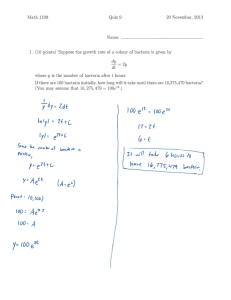Master Gardener Handbook Quiz on Chapter 8: Plant Pathology Questions
advertisement
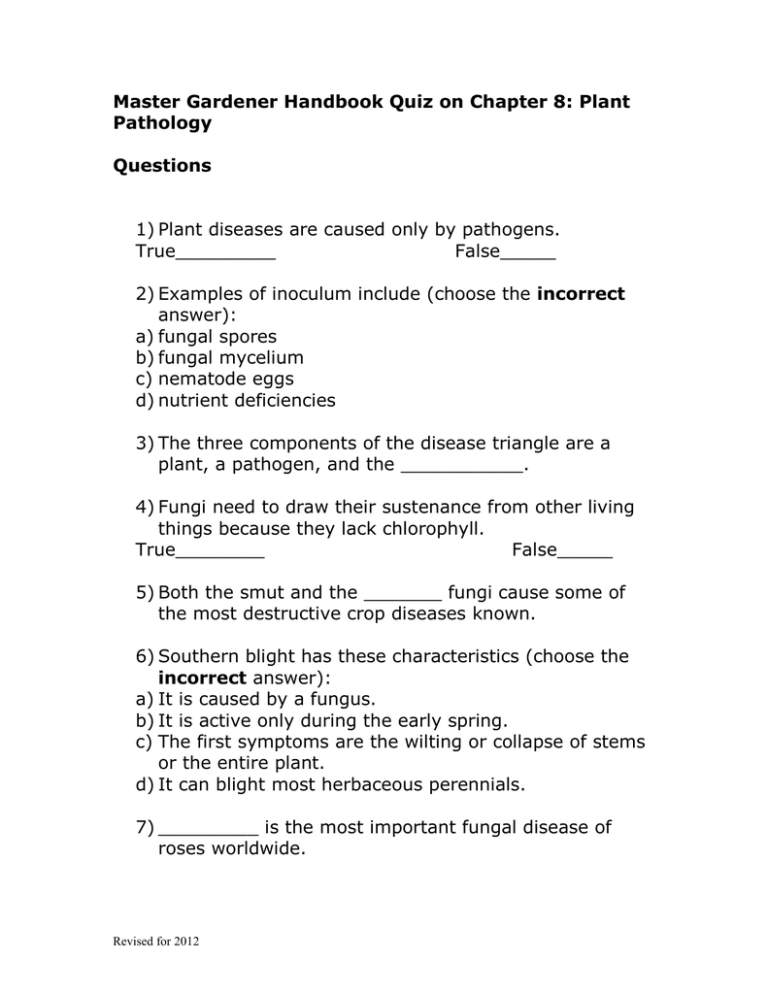
Master Gardener Handbook Quiz on Chapter 8: Plant Pathology Questions 1) Plant diseases are caused only by pathogens. True_________ False_____ 2) Examples of inoculum include (choose the incorrect answer): a) fungal spores b) fungal mycelium c) nematode eggs d) nutrient deficiencies 3) The three components of the disease triangle are a plant, a pathogen, and the ___________. 4) Fungi need to draw their sustenance from other living things because they lack chlorophyll. True________ False_____ 5) Both the smut and the _______ fungi cause some of the most destructive crop diseases known. 6) Southern blight has these characteristics (choose the incorrect answer): a) It is caused by a fungus. b) It is active only during the early spring. c) The first symptoms are the wilting or collapse of stems or the entire plant. d) It can blight most herbaceous perennials. 7) _________ is the most important fungal disease of roses worldwide. Revised for 2012 8) Dutch elm disease enters through feeding wounds made by termites. True_____ False_____ 9) Dogwood ___________ is the most serious disease of dogwoods in the landscape and in forests. 10) The optimum conditions for powdery mildew are cool days followed by cooler nights. True______ False______ 11) Bacteria have the following characteristics (choose the incorrect answer). a) Almost all plant bacteria are cone shaped. b) Bacteria reproduce by splitting into two equal halves. c) Bacteria invade plants through wounds and natural openings. d) In some cases, bacteria can survive in the soil. 12) A serious bacterial disease of plants in the rose family is ______ ________. 13) Nematodes either burrow into tissues and feed internally or feed from the surface of plant tissues. True______ False_____ 14) Most plant viruses cause ________ infections, and there is no cure for infected plants. 15) Homeowners can use chemical controls to kill nematodes. True_____ False_____ (Answers on next page) Revised for 2012 Master Gardener Handbook Quiz on Chapter 8 Answers Page in Handbook 1) False (Nonliving factors can also cause disease.) 115 2) d. nutrient deficiencies 115 3) environment 116 4) True 116 5) rust 118 6) b. (active only in hot weather) 118 7) Blackspot 119 8) False (elm bark beetles) 120 9) anthracnose 120 10) False (warm days) 121 11) a. rod shaped 122 12) fire blight 123 13) True 124 14) systemic 125 15) False (No nematicides are registered to homeowners.) 128 Revised for 2012
